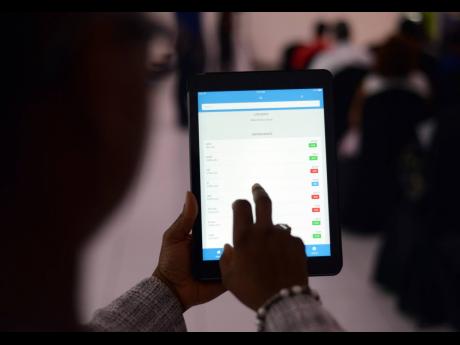Oran Hall | Investing in the Jamaican stock market from overseas
QUESTION: How can one living in Connecticut, USA, buy shares on the Jamaican stock market?
FINANCIAL ADVISER: There are two courses open to you: trading by relating directly to a stock broker and trading online, a facility offered by five member-dealers of the Jamaica Stock Exchange (JSE).
A resident of a foreign country who is investing in Jamaican stocks must first open an account with a local stockbrokerage firm, a list of which you can find at jamstockex.com/investor-centre/jse-brokers/.
Client agreement forms, which ask prospective investors to provide important information about themselves, are available online. The form must be printed and sent to a brokerage house with an original signature.
The following are also required: two pieces of identification (a valid driver’s licence, passport, national identification card, for example), two references, proof of address, and a copy of the social security card for US residents, social insurance card for Canadian residents, or a similar card for residents of another country. Prospective investors who prefer not to use a social security card or its equivalent may apply for a Taxpayer Registration Number, TRN.
To trade in stocks, you would need to have an account at the Jamaica Central Securities Depository (JCSD), into which your purchases will be lodged electronically and from which your sales will be transferred electronically. This is a very effective system that facilitates the settlement of transaction two business days after the sale or purchase of the stock as the case might be. You should, therefore, ask your broker to open a JCSD account for you.
To trade directly through a stock broker, you could call the broker to place your orders and confirm by electronic mail, or you may use electronic mail or another means of communication agreed with your broker. You would also need to put in place arrangements for the movement of funds between you and the broker, establish clear communication lines so that you can be advised of activities on your account, and expect to make a deposit on purchases, especially in the earlier phase of your relationship with your broker.
The JSE online trading facility allows investors to enter orders directly to its trading system through its online platform. Investors must first open an account with a broker so that they can enter transactions online through the broker. They should also have a JCSD account, which they should add to the platform, but the broker must approve the account for trading before the investor can begin to trade. The documents required to open the JCSD account are the same as those I mentioned above for opening a broker account.
JCSD accounts are usually opened within 72 hours of the required documents being submitted to the broker, but accounts do not become active until the broker submits them to the JCSD.
You must have money in your broker account to be able to trade online, and you can request funds from it through the online trading platform. Funds can be requested and released as required. If you decide to discontinue using your JCSD account, you can make a request to your broker through the online platform. The broker will advise you when the process has been completed.
You are not limited to trading just ordinary stock through the online platform, so you may trade other securities such as preference shares and bonds and debentures, which are listed on the JSE. You are, however, limited to trading in Jamaican dollars.
One big advantage of online trading is that you can place orders 24 hours per day every day of the week – important because orders are queued in the system and are executed based on priority. Orders placed outside of market hours and trading days are held and sent to the market on the next trading day, but those placed between 9 a.m. and 1 p.m. on trading days are sent directly to the market.
The system, however, allows the cancelling and modification of orders before they are executed, updates the accounts of investors as activities occur or as a status – pending, queued, cancelled, partially filled or filled – changes, and allows the viewing of the historical details of transactions on an investor’s account.
As they do in their dealings with their clients who trade more directly through them, brokers send a contract note with detailed particulars of all transactions to their clients who use the online platform. Those who trade online also have access to a confirmation page that shows details of their trades.
If you have an online account, it will be updated with the proceeds from your sales, or you may submit a request to your broker to withdraw funds. When you sell securities, you can use the proceeds immediately to buy more securities and can buy and sell the same day.
Being abroad does not have to disconnect you from trading on the Jamaica Stock Exchange, as you have realised, and you can strengthen the connection by visiting the web sites of the Jamaica Stock Exchange and the stockbrokers regularly.
- Oran A. Hall, principal author of The Handbook of Personal Financial Planning, offers personal financial planning advice and counsel.finviser.jm@gmail.com

